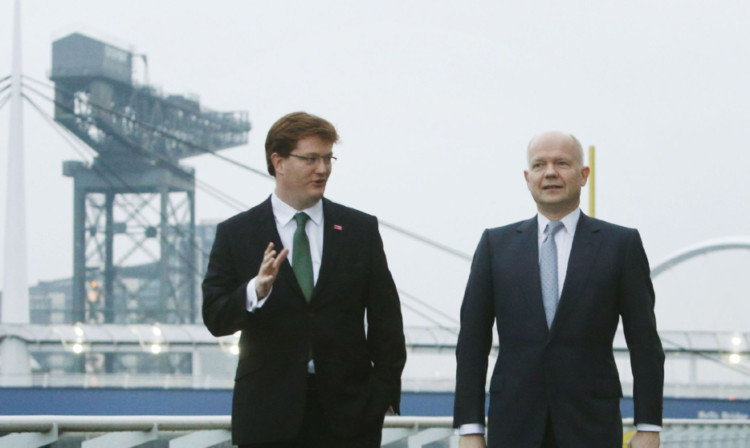Families would be £750 worse off under any settlement made for an independent Scotland gaining EU membership, the Chief Secretary to the Treasury has claimed.
Danny Alexander said if there is a Yes vote in September, Scots would no longer benefit from the rebate Britain receives from the European Union and would actually have to pay towards the UK’s cashback guarantee.
Mr Alexander visited Glasgow on Friday with Foreign Secretary William Hague to launch the latest of a series of papers from the UK Government looking at the potential impact of independence.
Over the period 2014 to 2020, Scotland would lose about £200 million in EU structural funds if it was independent, the Lib Dem MP claimed.
While he admitted the amount of funding an independent Scotland would receive from Europe’s Common Agricultural Policy (CAP) could increase, he also warned money from this source could fall by just over £1 billion.
Even if an independent Scotland received an extra £850m in CAP money, as the Scottish Government states, Mr Alexander argued the country would still be worse off overall.
The Westminster paper argued the “most optimistic” case was that Scotland would be £1.9 billion worse off as an independent member of the EU over the period 2014 to 2020 but that could rise to £3.8bn “under less optimistic scenarios”.
Mr Alexander said: “What this means for Scottish families is that over the next seven years, continuing as part of the United Kingdom will save them at least £750 per household, possibly climbing to £1,470 per household.
“So, as part of the UK, we Scots pay less and we get more out of our EU membership. On our EU membership alone, Scotland would be between £1.9bn and £3.8bn better off as part of the UK over the next seven years.”
However, Scotland’s Deputy First Minister Nicola Sturgeon argued that “more than ever, Scotland needs direct representation in Europe so we can protect and promote Scotland’s interests”.
She added: “The fact is, Scotland would receive £850m more in farm payments if we were an independent member of the EU.
“Even the No campaign’s own academic policy adviser says an independent Scotland can avoid joining Schengen or the euro.”
